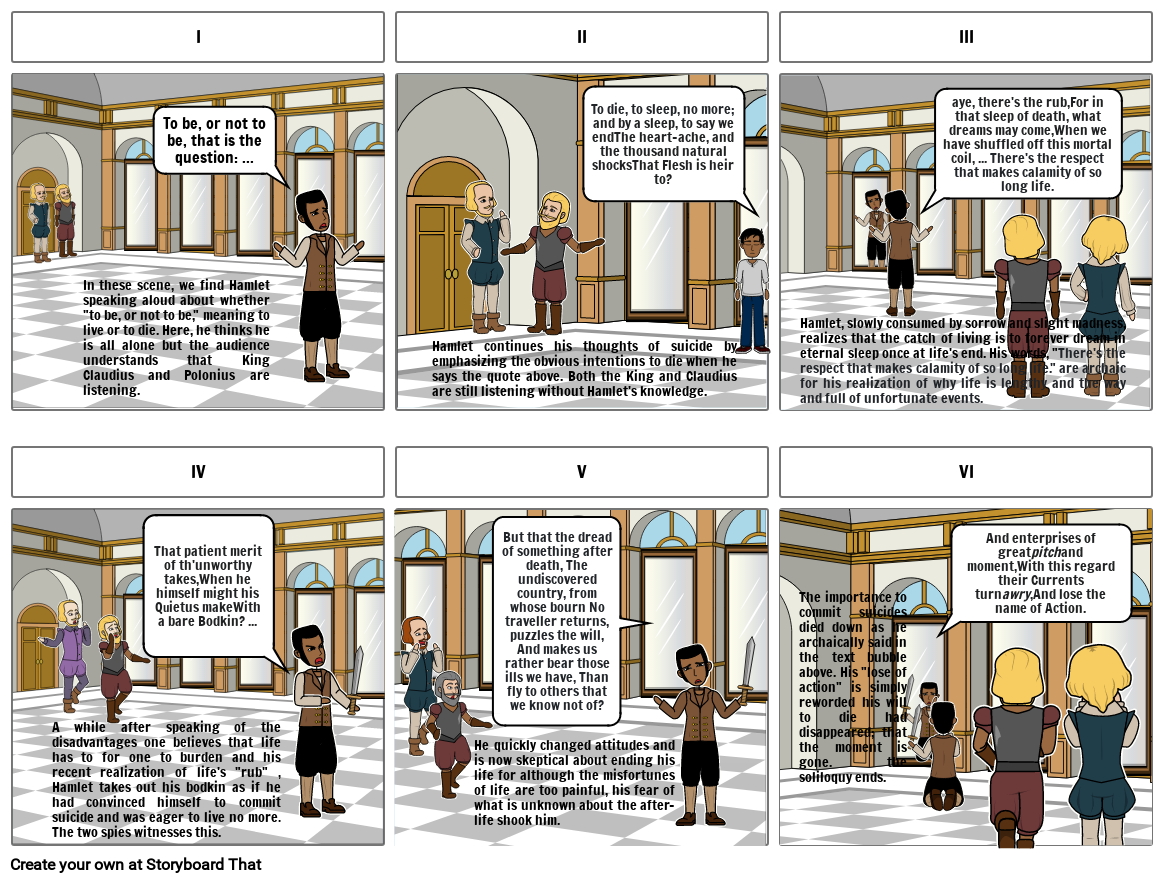Storyboard act III

Montāžas Teksta
- I
- In these scene, we find Hamlet speaking aloud about whether "to be, or not to be," meaning to live or to die. Here, he thinks he is all alone but the audience understands that King Claudius and Polonius are listening.
- To be, or not to be, that is the question: ...
- II
- To die, to sleep, no more; and by a sleep, to say we endThe heart-ache, and the thousand natural shocksThat Flesh is heir to?
- III
- Hamlet, slowly consumed by sorrow and slight madness, realizes that the catch of living is to forever dream in eternal sleep once at life's end. His words, "There's the respect that makes calamity of so long life." are archaic for his realization of why life is lengthy and the way and full of unfortunate events.
- aye, there's the rub,For in that sleep of death, what dreams may come,When we have shuffled off this mortal coil, ... There's the respect that makes calamity of so long life.
- IV
- That patient merit of th'unworthy takes,When he himself might his Quietus makeWith a bare Bodkin? ...
- V
- Hamlet continues his thoughts of suicide by emphasizing the obvious intentions to die when he says the quote above. Both the King and Claudius are still listening without Hamlet's knowledge.
- But that the dread of something after death, The undiscovered country, from whose bourn No traveller returns, puzzles the will, And makes us rather bear those ills we have, Than fly to others that we know not of?
- VI
- The importance to commit suicides died down as he archaically said in the text bubble above. His "lose of action" is simply reworded his will to die had disappeared; that the moment is gone. the soliloquy ends.
- And enterprises of greatpitchand moment,With this regard their Currents turnawry,And lose the name of Action.
- A while after speaking of the disadvantages one believes that life has to for one to burden and his recent realization of life's "rub" , Hamlet takes out his bodkin as if he had convinced himself to commit suicide and was eager to live no more. The two spies witnesses this.
- He quickly changed attitudes and is now skeptical about ending his life for although the misfortunes of life are too painful, his fear of what is unknown about the after-life shook him.
Izveidoti vairāk nekā 30 miljoni stāstu shēmu

